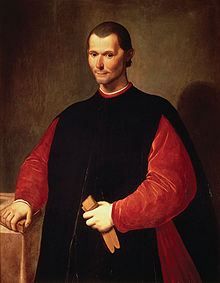
 Dani Rodrik has an interesting article about the pernicious effect of political economy research on policy making:
Dani Rodrik has an interesting article about the pernicious effect of political economy research on policy making:
Frustrated by the reality that much of our advice went unheeded (so many free-market solutions still waiting to be taken up!), we turned our analytical toolkit on the behavior of politicians and bureaucrats themselves. We began to examine political behavior using the same conceptual framework that we use for consumer and producer decisions in a market economy. Politicians became income-maximizing suppliers of policy favors; citizens became rent-seeking lobbies and special interests; and political systems became marketplaces in which votes and political influence are traded for economic benefits.
In order to change the world, we need to understand it. And this mode of analysis seemed to transport us to a higher level of understanding of economic and political outcomes.
But there was a deep paradox in all of this. The more we claimed to be explaining, the less room was left for improving matters. If politicians’ behavior is determined by the vested interests to which they are beholden, economists’ advocacy of policy reforms is bound to fall on deaf ears. The more complete our social science, the more irrelevant our policy analysis.
But then he becomes more positive and extols the impact of “ideas” on politics:
Ideas determine the strategies that political actors believe they can pursue. For example, one way for elites to remain in power is to suppress all economic activity. But another is to encourage economic development while diversifying their own economic base, establishing coalitions, fostering state-directed industrialization, or pursuing a variety of other strategies limited only by the elites’ imagination. Expand the range of feasible strategies (which is what good policy design and leadership do), and you radically change behavior and outcomes.
Indeed, this is what explains some of the most astounding turnarounds in economic performance in recent decades, such as South Korea’s and China’s breakout growth (in the 1960’s and the late 1970’s, respectively). In both cases, the biggest winners were “vested interests” (Korea’s business establishment and the Chinese Communist Party). What enabled reform was not a reconfiguration of political power, but the emergence of new strategies. Economic change often happens not when vested interests are defeated, but when different strategies are used to pursue those interests.
I agree ideas matter but they too can be used to in political discourse to maximize the benefits to powerful vested interests. Deliberate misapplication of ideas is the age old strategy
First, take the “markets work” idea. Yes, free markets are great is some circumstances, when competition is perfect. But some kind of regulation is ideally warranted when they are imperfect. But the firms in imperfectly competitive markets would love to be deregulated. They can argue that their market is actually perfect. They can hire lobbyists to persuade politicians and perhaps succeed. In this case, ideas lead to deregulation when it is not warranted.
Second, take the “markets fail” idea. Yes, markets fail is some circumstances, when there are externalities. But there should be no regulation if they are perfect. But the firms in perfectly competitive markets would love price supports, tariffs against foreign competition, entry barriers etc. They can argue that their market is actually imperfect. They can hire lobbyists to persuade politicians and perhaps succeed. In this case, ideas lead to regulation when it is not warranted. We economists are enamoured on the “invisible hand” and have many examples of this scenario. We have fewer examples of the first partly because we do not look for them. But such examples are a favorite of liberals.
So, Rodrik has an interesting perspective of the pernicious effects of positive political economy and the nihilism is generates towards policy. But he is too optimistic about the power of ideas. Ideas can be misused deliberately by vested interests

4 comments
Comments feed for this article
February 14, 2013 at 12:26 pm
DRDR
I disagree that positive political economy makes normative analysis less relevant. Yes, positive political economy models leave “less room” for improvement, but that’s good because we don’t want to engage in wishful thinking. You still influence what choices you can influence to move closer to the first-best outcome. Yes, expanding ideas is one form of influence, and like any other choice, it can have unintended consequences.
February 14, 2013 at 3:53 pm
Daniel
I wonder when people are going to take the next step and examine the behavior of academic economists using the same conceptual framework that they use for consumer, producer as well as political decisions. That would be a final step towards understanding the impact of ideas in political economy: if any idea is likely to produce a positive surplus, someone else would have already written a paper on it.
Thinking about it a little more, this sounds like a paper Rubinstein has probably already written.
February 14, 2013 at 7:51 pm
Dismalist
In an obscure contribution, Coase wrote that resistance rises or alternatives rise when the deadweight losses become too big. He could have added that if such does not happen, the system disappears.
March 10, 2013 at 1:35 am
brucetheeconomist
if theory is comprehensive enough aren’t we all living in a clockwork, that we can’t change?